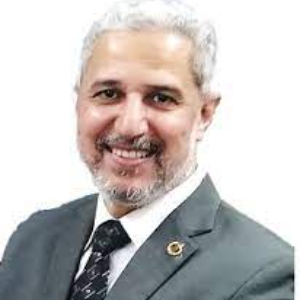Title : Sustainability of groundwater resources in the Nile delta under the impact of climatic changes: challenges and future directions
Abstract:
Sustainable development in the Nile Delta region, Egypt is retarded by serious environmental problems, where the land use and land cover of the region is changing over the present time. The groundwater quality in the Nile Delta area is controlled mainly by saltwater intrusion from the north due to Sea Level Rise (SLR), in addition to surface contaminants from the common wastewater networks in heterogeneous clay and silt soils. Due to the excessive pumping over the last few decades, the groundwater salinity in the northern and middle parts of the delta has considerably increased and the salty water migrated to the south. Thus, the delta faces a lot of environmental problems and challenges now and in the future due to the unplanned water resources and wastewater pollution. To elaborate on these challenges and the future development of the groundwater aquifer, in-depth analyses of vulnerability conditions related to water quality and soil salinization are suggested in the present work. Therefore, an integrated management plan for freshwater conservation in the Nile Delta is presented where the area is one of the most vulnerable deltas in the world due to SLR and freshwater scarcity. Reasonably, geological, hydrochemical, groundwater recharge system and flow regime, and hydro-geophysical datasets were integrated into a GIS environment to fully understand these threats and challenges such as groundwater salinization, wastewater (domestic and agricultural drainages) penetration into the shallow freshwater aquifer, and cultivated land salinization. In addition, the socio-economics information and governance are addressed to make future conservation scenarios to improve water allocation as an economic good. Accordingly, the results are provided all stakeholders with reliable and affordable drinking water, sustainable irrigation water resources, and enhancement of soil productivity.
The ongoing works will comprise the following outcomes,
- Providing in cooperation with National Authority for Potable Water and Sewage a reliable roadmap for water quality conservation (changes in water quality in time and space) using advanced machine learning techniques and statistical modeling in order to evaluate long-term changes in water quality for domestic and irrigation supplies, and
- Water quantity and quality monitoring improvement and assessment by establishing an internet-based monitoring system based on harnessing the cloud computing power along with the artificial intelligence techniques


